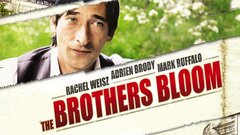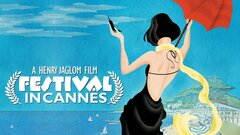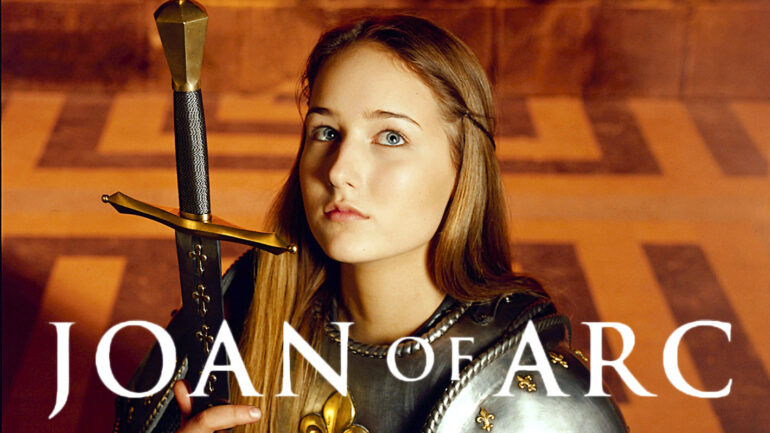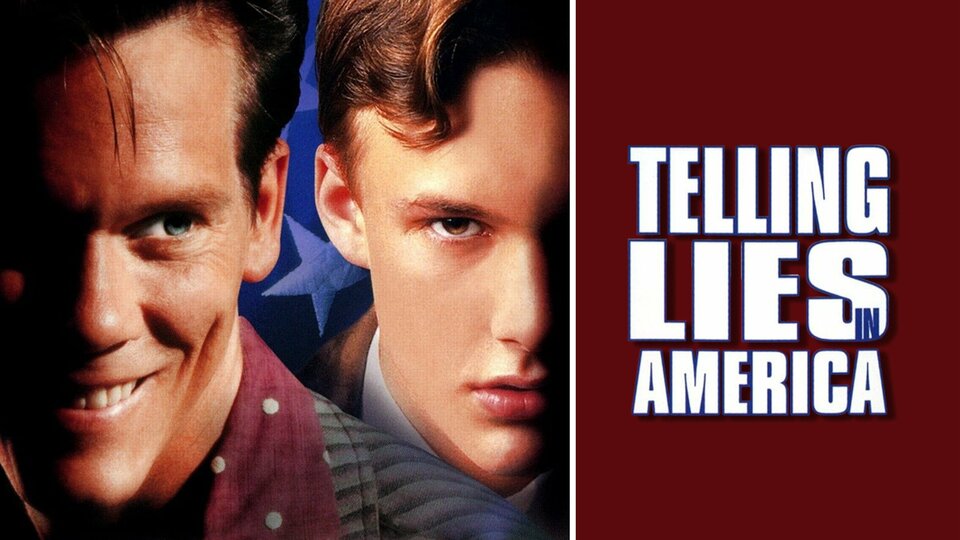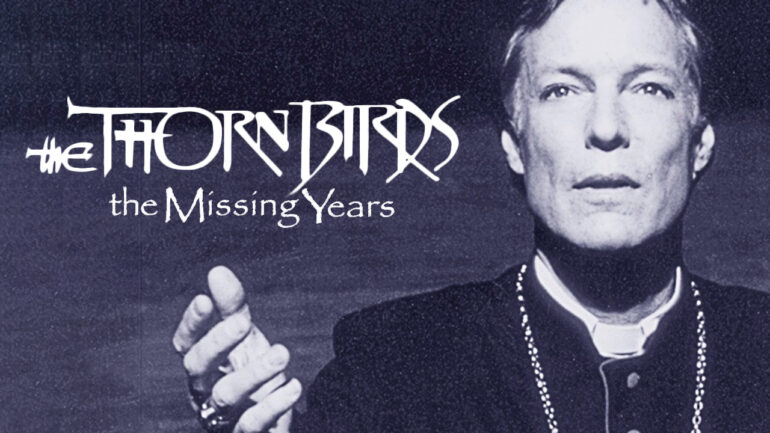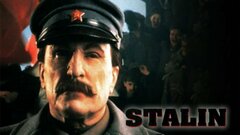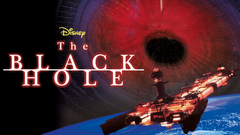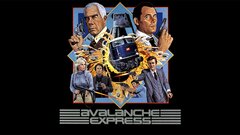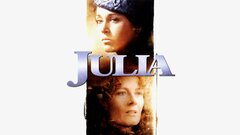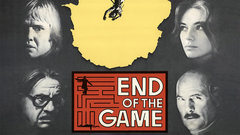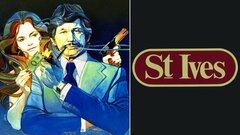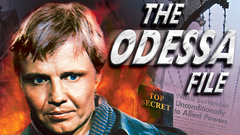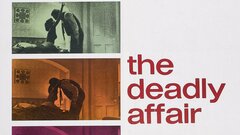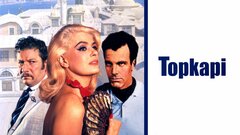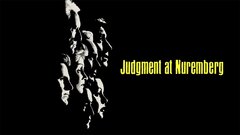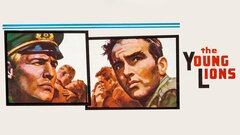Though he spent a great part of his career playing a variety of roles, actor Maximilian Schell made his name in a number of World War II-themed film and television projects. After taking his first Hollywood bow with a turn as a Nazi officer in "The Young Lions" (1958), Schell won an Academy Award for his portrayal of a dogged defense attorney in the courtroom classic "Judgment at Nuremberg" (1961). Not content with being strictly an actor, he also developed a second career as an award-winning director, starting with "First Love" (1970), which earned a foreign picture nomination at the Academy Awards. Over the next few decades, Schell amassed an impressive array of screen credits that included a compelling performance in the title role of "Peter the Great" (NBC, 1986).
He earned several awards, including a Golden Globe, for portraying another prominent Russian leader in "Stalin" (HBO, 1992). By that time in his career, Schell was doing his most prominent work on the small screen, while occasionally appearing in niche features and independents. At his death at the age of 83, Schell was long remembered for being perhaps the most famous and accomplished actor to emerge from his native Austria.
Born on Dec. 8, 1930 in Vienna, Austria, Schell was raised in an artistic household by his father, Hermann, a writer and poet, and his mother, Maria, an actress. Schell's family fled Austria in 1938 around the time of Nazi occupation and took up residence in Zurich, Switzerland. After serving in the Swiss Army and reaching the rank of corporal, he studied art history at universities in Zurich, Munich and Basel.
In 1953, Schell began his acting career at the Basel Theater and moved on to theaters in Bonn, Essen and Berlin, among others. He made his onscreen debut in the German-made "Children, Mother and the General" (1955), Laslo Benedek's maudlin look at the futility of war during the last days of World War II Berlin. Schell continued appearing in the classics onstage while making German films like "The Last Ones Shall Be First" (1957) and "Taxi Driver Baenz" (1957) until he was cast as a cynical Nazi officer in the American feature, "The Young Ones" (1958), starring Marlon Brando, Montgomery Clift and Dean Martin.
After a German-made television production of "Hamlet" (1960), which was redubbed into English and later shown at the San Francisco Film Festival, Schell gave a powerful performance as a relentless defense attorney in Stanley Kramer's "Judgment at Nuremberg" (1961), a role that he had originated on the "Playhouse 90" (1959) original. A cinematic classic that earned numerous awards and accolades, "Nuremberg" turned Schell into an international star after he won the Academy Award for Best Actor. Refusing to be typecast in World War II movies, Schell next starred in the low-key drama, "Five Finger Exercise" (1962), playing a German teacher brought in to tutor the two children of a married couple (Jack Hawkins and Rosalind Russell), but instead wreaks havoc, resulting in betrayal, wounded feelings and potential suicide.
In "The Reluctant Saint" (1962), a biography based on the life of Saint Joseph of Cupertino, Schell was a 17th century Italian man who is seemingly mentally challenged and sent to a monastery by his parents, where he displays strange and wonderful spiritual gifts. He next starred in "Topkapi" (1964), playing a master jewel thief who plans an elaborate heist with the help of his crew and an unwitting dupe (Peter Ustinov).
Though not wanting to make a career out of World War II films, Schell continued to find himself taking roles in precisely that type of film. In "Return From the Ashes" (1965), he was the husband of a concentration camp survivor (Ingrid Thulin) thought to be dead, while in "Counterpoint" (1967), he played a German officer fond of classical music who orders a European orchestra led by a crafty director (Charlton Heston) to play a special concert, after which all the musicians will be killed. After playing the colleague of a British agent (James Mason) sleeping with his wife (Harriet Andersson) in "The Deadly Affair" (1967), he appeared in the television movie, "Heidi" (NBC, 1968), a drama about an orphan girl (Jennifer Edwards) who goes to live with her grandfather in the Swiss Alps. The movie became famous for cutting into the final minute of a regular season game between the New York Jets and Oakland Raiders, in which the Raiders scored 14 points in the final 65 seconds. But no one at home saw the miraculous comeback because the network was determined to air "Heidi" at its scheduled time. The backlash caused networks to later amend their policies, while the game itself became derisively known as "The Heidi Bowl."
Taking more control of his career, Schell produced and starred in the well-made adaptation of Franz Kafka's eponymous novel, "The Castle" (1969), featuring two endings in keeping with the author's inability to complete the work before he died. Schell made his debut as director with "First Love" (1970), which he adapted from a story by Ivan Turgenev about two young lovers (Dominique Sanda and John Moulder Brown) coming of age while pre-war Europe braces for the inevitable. "First Love" earned an Oscar nomination for Best Foreign Film. In "Paulina 1880" (1972), he was a married nobleman in love with another woman (Olga Karlatos) who is unable to get a divorce and is forced by societal norms to keep the affair secret. Returning to the director's chair, Schell received more international acclaim with "The Pedestrian" (1973), a political drama about an industrialist (Schell) with a past that returns to haunt him. As with his first directing effort, his film earned an Academy Award nomination for Best Foreign Film. After playing an SS officer hiding from a German reporter (Jon Voight) after the war in "The Odessa File" (1974), Schell scored his second Best Actor Oscar nomination for his brilliant portrayal of Adolph Eichmann-inspired Arthur Goldman in "The Man in the Glass Booth" (1975).
Diversifying his profile, Schell co-wrote "The End of the Game" (1976) with Friedrich Durrenmatt from Durrenmatt's novel, as well as helmed the complex thriller about a dying police chief (Martin Ritt) who has tried for decades to nail an omnipotent criminal (Robert Shaw). In "Cross of Iron" (1977), directed by troubled auteur Sam Peckinpah, he was a cowardly German officer who takes command of a retreating platoon and needs the help of a non-compliant soldier (James Coburn) to earn the titular medal. After a small role in Richard Attenborough's epic war film "A Bridge Too Far" (1977), he co-starred opposite Jane Fonda and Lynn Redgrave in the underrated period drama, "Julia" (1977), earning him another Oscar nod for Best Actor. Following his well-received directing effort, "Tales from the Vienna Woods (Geschichten aus dem Wiener Wald") (1979), he was memorable as a mad scientist who wants to explore a spiraling black hole in search of the universe's energy source in "The Black Hole" (1979). Making the rare appearance as a non-German in a World War II-themed film, he played Otto Frank, father of Anne Frank (Melissa Gilbert), in the well-made television version of "The Diary of Anne Frank" (NBC, 1980).
Following a turn as a Jewish intellectual opposite Rod Steiger's orthodox rabbi in "The Chosen" (1981), a first-rate adaptation of Chaim Potok's novel, Schell delivered a scene-stealing take as the disfigured Phantom in the television adaptation of "The Phantom of the Opera" (CBS, 1983). Venturing into non-fiction territory, Schell directed "Marlene" (1984), an unorthodox profile on actress Marlene Dietrich. Though for years she refused to be interviewed by Schell, Dietrich finally relented, but only allowed him to use her voice and not film her on camera. The result was a compelling and honest portrayal of the legendary star that earned Schell's film an Oscar nomination for Best Documentary. Returning once again to World War II, he was part of an all-star cast that included James Mason and Ben Cross in "The Assisi Underground" (1985), a rather dull look at a group of Europeans who risked their lives saving Jews from the Holocaust. Schell was excellent as the star of the Emmy-winning miniseries "Peter the Great" (NBC, 1986), though he was plagued by numerous behind-the-scenes problems that became the source of a public battle between the star, the director and the studio. Schell felt the director had received preferential treatment over the cast and balked at the hours and conditions under which they were required to work.
Schell next delivered a compelling turn opposite Vanessa Redgrave in "The Rose Garden" (1989), a contemporary courtroom drama in which he played an anguished man accused of attacking a man he recognized as an SS commander responsible for his sister's murder. In a rare regular series role as Amado Guzman during the last season of "Wiseguy" (CBS, 1987-1991), he played Frederick the Great to Redgrave's Empress Elizabeth in "Young Catherine" (TNT, 1991), a two-part miniseries tracing the early life of 18th century Russian empress, Catherine the Great (Julia Ormond). Bearing an uncanny resemblance to Vladimir Lenin, he delivered a powerful performance in "Stalin" (HBO, 1992), starring an equally compelling Robert Duvall as the ruthless dictator. He earned his first-ever Emmy nomination for his role in "Miss Rose White" (NBC, 1992), a heartrending drama about two sisters trying to reunite after surviving the Holocaust. After a supporting turn in an early Reese Witherspoon feature, "A Far Off Place" (1993), he played the pharaoh in the adaptation of the Old Testament tale of "Abraham" (TNT, 1994), starring Richard Harris as the humble shepherd.
Continuing an impressive string of performances, he displayed impressive emotional range in "Little Odessa" (1994) as the rancorous Russian father of a hit man (Tim Roth) grief-stricken over his wife's (Redgrave) battle with a brain tumor. He portrayed Cardinal Vittorio in the miniseries "The Thorn Birds: the Missing Years" (CBS, 1996), which he followed with a supporting turn as a strict father trying make his rapidly Americanized son (Brad Renfro) stick to his Hungarian roots in "Telling Lies in America" (1997). After the forgettable supernatural thriller "The Eighteenth Angel" (1997), he again found himself opposite Vanessa Redgrave in "Deep Impact" (1998), this time as the ex-husband who has abandoned her for the charms of a younger woman, which matters little after an asteroid collides into Earth. In the well-meaning, but ultimately flawed "Left Luggage" (1998), he was the father of a young Jewish woman (Laura Fraser) whose free-spirited nature runs afoul of his adherence to custom and tradition. He followed with a turn as a cardinal in the Catholic Church who guides a team of vampire hunters lead by James Woods in "John Carpenter's Vampires" (1998).
Following a supporting turn in the miniseries "Joan of Arc" (CBS, 1999), he was a formerly successful film director trying to scrounge financing for his next film in the show business farce, "Festival in Cannes" (2001). He returned to previous glory by starring in a Broadway production of "Judgment at Nuremberg" (2001), while he directed a Los Angeles Opera production of Richard Wagner's "Lohengrin" (2001). He returned to documentary filmmaking with "My Sister Maria" (2002), a moving portrait of his sister, actress Maria Schell, who enjoyed brief fame in the 1950s, but fell into obscurity and battled depression that lead to a suicide attempt. After appearing in the road drama "Coast to Coast" (Showtime, 2004), Schell was absent from the screen until he re-emerged in the German-made thriller, "House of the Sleeping Beauties" (2008). He again starred opposite Vanessa Redgrave, this time in "The Shell Seekers" (Hallmark Channel, 2008), which focused on an elderly woman (Redgrave) returning to see her children and re-examining her life after a heart attack. Schell next co-starred opposite Rachel Weisz, Adrien Brody and Mark Ruffalo in the caper comedy, "The Brothers Bloom" (2009), and had a small role in the Czech horror film "Darkness" (2009). Maximilian Schell died after a sudden illness in Innsbruck, Austria on February 1, 2014.









